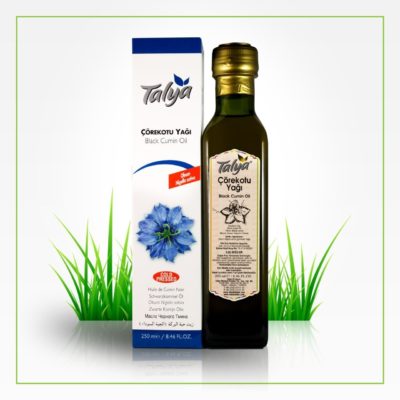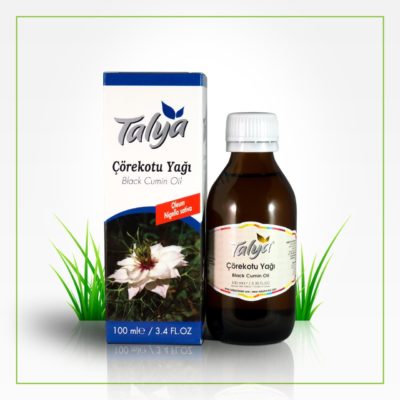Black Cumin Oil, blog
Healthy Digestion
One of the biggest issues in our epidemiology these days is digestive issues. It seems to now be the norm to be suffering from some sort of uncomfortable symptoms pertaining to digestion which has resulted in quite a bit of food fear which food and supplement companies have been taking advantage of marketing everything from foods free of common irritants to pre and probiotics promising to alleviate our discomfort. So what’s causing this epidemic? Well unfortunately in our modern world, we and our immune systems are exposed to thousands of chemicals daily that have been wreaking havoc on our digestive health. These chemicals come from our food, our supplements, our clothing, our body products, our home products and of course environmental sources such as car exhaust, fumes from factories and even radiation from our high tech society. All of these issues combined with people eating on the go, people eating while they’re stressed, people eating at odd hours and at times when they’re not hungry, people not chewing their food and people not eating enough whole plant foods have all exasperated the problem.
So how do we fix it? Well, first of all, I believe we need to be vocal about the problem. Groups who are suffering need to speak up and groups who can shed some light on the issue should share their knowledge acknowledging the dilemma. As with anything that we hope to fix in life, we can only do it once we’ve acknowledged that there is an imbalance. Once we have done that we can get into the problem-solving mode. First off, we must understand that each of us is different and each one of us has a different microbiome with varying ratios of gut bacteria. This means one must begin the process of healing and cultivating healthy digestion by really tuning in and listening to their unique body and the cues it is giving them. We must get away from watching what internet personalities are doing and hoping that what works for them will work for us.
In order to do this, I definitely believe it’s important to understand your Ayurvedic constitution and you can take a quiz to get a good idea here. Once you have a good understanding of your constitution you can figure out which foods work best for you and which could potentially aggravate your symptoms. I won’t get into detail about this subject because you really should start to learn more about your own body yourself and there are plenty of other issues that do pertain to the masses that we can continue to discuss.
First and foremost, we need to slow down. The term rest and digest isn’t just some hippie saying some yogie created, it’s absolutely critical for optimal digestion. You need to start scheduling mealtimes like you would other important tasks such as business meetings and doctor’s appointments. Give yourself a nice break three times a day to enjoy your meals and be present with them. Our nervous system is very impressive but just as your performance suffers when you multitask so does your body’s. So stop answering emails and watching Instagram stories while you eat. Be present with your food, chew each bite until it is pretty much liquid before swallowing and appreciate the textures, flavors, and nutrients your meal is providing.
Do not drink a lot of water while you’re eating as it will dilute your stomach acid resulting in gas and bloating from a slowed down digestion. Drink your water before and about an hour after the meal has concluded instead. It’s ok to sip water sparingly while you eat but do not take full swigs. Additionally, water should never be ice cold or refrigerated around meals as this will also impair digestion. Drink at least room temperature but warm water is best as it will help keep things moving without constricting blood vessels.
When you’re done eating do not engage in a physical activity until you feel comfortable. This will depend on your body constitution though. Some may be up for a walk 15 minutes after eating a meal while others may need to wait closer to an hour. Again, the body needs to focus on breaking down and assimilating nutrients. It can not do this if it also needs to focus on sending proper blood flow to your limbs as you resume your activities. If you’re thinking you don’t have time for this, you do. It’s simply a matter of reorganizing your day. For example, if lunch is where you see the biggest hurdle then plan an administrative task that you can complete without falling behind after your meal. We all have these tasks in the Western world and this is where most people suffer from digestive issues.
The last thing I’ll mention before we get into the food on our plate is meal timing. It is very important to not eat when you’re not hungry. Meaning doesn’t start snacking two hours after lunch just because your coworker brought in some treats to share. The entire process of digestion (when eating a complete meal) takes between 4 and 6 hours depending on your constitution. So even though you may not feel full any longer, that doesn’t mean that your body is finished working. If you don’t follow this rule your body will be forced to halt the process of breaking down the prior meal to tend to the newer meal. This means the first meal will be left to putrefy in your gut causing bloating, gas and constipation. Our ancestors never ate when their body wasn’t asking them to, again, listen to your cues and politely decline the snack by saying you’re not yet hungry.
Ok now for the food. Obviously, or hopefully, obviously, you may have heard by now that we need to cut back on processed foods and focus on building a diet centered around whole foods. Processed foods are filled with additives, gums, binders, fillers, coloring agents, preservatives, sweeteners, and other harmful chemicals. Your body doesn’t understand these things as we haven’t evolved biologically to keep up with modern day food production. Not only will these ingredients cause embarrassing digestive symptoms but they will also lead to weight gain and potentially disease if consumption is consistent. You can reference the new dietary guidelines released in Canada here. They recently updated their recommendations to reflect very close to a whole food plant-based diet.
The key with this is to eat foods as close to their whole form as possible such as a whole apple, a bunch of lettuce or raw almonds. It is ok to include some processed foods such as rice, beans, oatmeal, pasta, and even some condiments regularly and ok to include more processed foods such as plant-based yogurt or veggie burger occasionally. Just read the ingredients and if you see too many items or words you can’t pronounce you might want to reconsider or save it for a rare treat. This again will depend on your body constitution and whether or not your digestion is in a good place now. If you’re suffering from lots of bloating, gas, constipation, diarrhea or heartburn, you’re better off sticking with just the whole foods.
If you are one of these people, you may want to seek guidance from a qualified health professional who can properly diagnose you. Many people suffer from allergies, candida, sibo, IBS, diverticulitis, chrons disease or celiac disease and they often go undiagnosed for months or even years. You could also have an issue with inadequate stomach acid, have a parasite or some other sort of immune disorder. The good news is that because it’s so much more common these days you should be able to find a doctor who can recommend the treatments that will allow you to heal and repair your digestive health.
Black cumin oil is a natural remedy with many amazing benefits. Read the 12 benefits of black seed oil to know more. Boosting your digestive health is one of them. Talya Herbal Malaysia offers high quality natural cold-pressed black cumin oil that is free from GMOs, pesticides, gluten, heavy metals or preservatives. We highly recommend you to try it to enjoy the health benefits it brings.
Give Talya Herbal Black Cumin Oil a try!
Click HERE to go to Talya Herbal Malaysia online shop.
Get yours health boost today!
About the Author: Edith Agoston is a freelance writer and Integrative Nutrition Health Coach in Seattle, WA. She writes about all things health and wellness including nutrition, fitness, and spirituality on her main platform edithagoston.com. Edith works with her clients to implement behavioral lifestyle changes to improve their overall well being.




